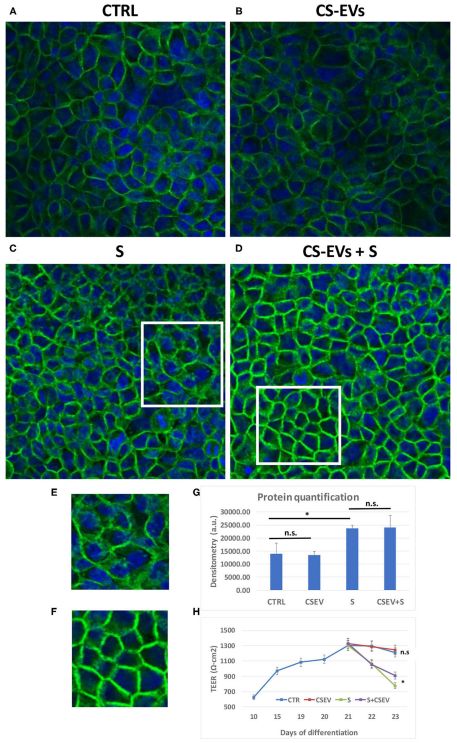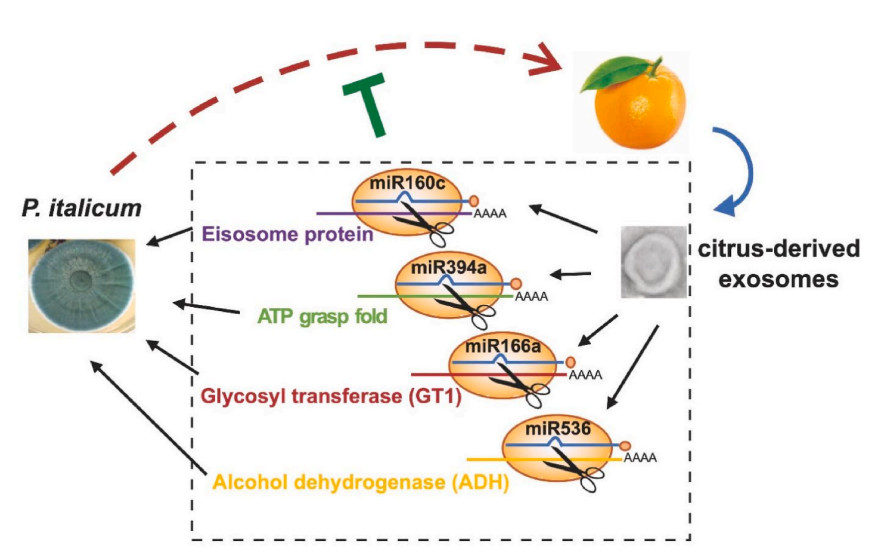Orange-derived Exosome Research and Application
Introduction Service Workflow Technology Advantages Deliverables Testimonials FAQs
Introduction
Orange-derived exosomes (OEVs) are emerging as a valuable focus in the study of plant nanovesicles. As nano-sized extracellular vesicles naturally secreted by citrus cells, OEVs encapsulate various bioactive compounds, such as proteins, lipids, nucleic acids, and small molecules. These vesicles play crucial roles in intercellular communication, nutrient delivery, and immune modulation. Creative Biolabs, a leader in plant exosome technologies, provides robust and customized research solutions for the isolation, analysis, and functional investigation of OEVs.
Recent studies highlight the unique structural resilience and biological efficacy of orange-derived exosomes in both plant and animal models. Unlike traditional plant extracts, OEVs demonstrate superior biocompatibility and stability, positioning them as excellent candidates for studies in cellular physiology, intercellular signaling, and stress response mechanisms.
Expert Support for Orange Vesicle Research
At Creative Biolabs, we specialize in providing comprehensive research services tailored to the needs of plant exosome researchers. Our citrus-focused exosome offerings include:
-
High-Fidelity Isolation: Using ultracentrifugation, membrane filtration, and immunoaffinity techniques.
-
Comprehensive Characterization: NTA, TEM, Western blot, and proteomic/lipidomic profiling.
-
Biofunctionality Testing: Evaluating cellular uptake, immune response modulation, and vesicle stability.
-
RNA Cargo Analysis: Profiling of miRNA and other non-coding RNAs relevant to signaling or gene regulation.
-
Pilot Production Studies: Supporting comparative analysis between citrus varieties or growing conditions.
Our team of plant biologists, molecular biologists, and nanovesicle experts ensures high reliability in data and reproducibility across projects.
 Fig.1 Orange exosomes affect OCLN localization and trans-epithelial resistance.1, 3
Fig.1 Orange exosomes affect OCLN localization and trans-epithelial resistance.1, 3
Vesicle Preparation and Analysis Workflow
To support accurate and reproducible research, Creative Biolabs offers a standardized workflow for orange-derived exosome studies:
-
Raw Material Selection: Sourcing fresh, organically grown oranges free from pesticide residues.
-
Initial Processing: Mechanical juicing followed by low-speed centrifugation to remove cellular debris.
-
Ultracentrifugation and Gradient Separation: Isolating vesicles using size and density differentials.
-
Nanoparticle-Assisted Separation (Optional): Using tagged particles for high-selectivity recovery.
-
Membrane-Based Purification: Fine filtration using pore sizes optimized for vesicle exclusion.
-
Characterization and Storage: Analytical validation followed by -80°C storage in RNase-free conditions.
Each step is optimized to prevent degradation or aggregation, preserving vesicle structure and internal content.
Technology and Tools Driving Creative Biolabs' Platform
Our research infrastructure for orange exosomes includes:
-
Nanoparticle Tracking Analysis (NTA): Accurate quantification and sizing.
-
Transmission Electron Microscopy (TEM): Visualization of vesicle morphology.
-
miRNA Sequencing and qPCR: For RNA cargo characterization.
-
Simulated Gastrointestinal Stability Testing: Assessing vesicle integrity in biologically relevant conditions.
-
In Vitro Functional Assays: Modeling vesicle interaction with immune, epithelial, and plant cells.
Creative Biolabs' continual investment in equipment and expertise ensures that you receive data grounded in scientific rigor.
 Fig.2 Exosomes isolated from oranges are enriched with miRNAs to resist the pathogenicity of P. italicum on citrus fruits.2, 3
Fig.2 Exosomes isolated from oranges are enriched with miRNAs to resist the pathogenicity of P. italicum on citrus fruits.2, 3
What Sets Creative Biolabs Apart
Creative Biolabs' plant exosome services are trusted by academic labs and research institutions worldwide. Our commitment to quality and collaboration is reflected in our client partnerships. Advantages of choosing Creative Biolabs include:
-
Non-Solvent Processing: No toxic chemicals are used in extraction or purification.
-
Cross-Species Vesicle Comparison Services: For researchers comparing multiple fruit sources.
-
Bioactivity-Preserving Storage Solutions: Ensuring vesicles retain efficacy for months.
-
Open Data Policy: Access to raw data, SOPs, and method validation reports upon request.
We don't just offer services—we partner with you to accelerate discovery.
Deliverables and Reporting
When you choose Creative Biolabs for orange exosome studies, you receive:
-
Purified OEV samples from standardized batches
-
Detailed experimental protocols and QC documentation
Optional add-ons include:
-
Full analytical datasets: NTA, TEM, lipid content & miRNA profiles
-
Functional readouts on immunomodulation and epithelial integrity
-
Custom labeling for tracking studies
-
Batch-to-batch consistency data
-
Citrus varietal comparison studies
What Researchers Are Saying
"The orange vesicle data from Creative Biolabs was instrumental in understanding gut-immune interactions in our animal model. Their team delivered high-quality results with impressive turnaround times."
— Dr. YasXXXX
"Creative Biolabs' platform gave us reproducible OEV isolates and functional insights we couldn't get elsewhere. Their attention to detail and transparent protocols made the process seamless."
— Dr. KeiXXXX
Contact Creative Biolabs today to unlock the scientific value of orange-derived vesicles in your next research project. We look forward to helping you explore the frontiers of plant nanovesicle biology.
FAQs
Q: What are the potential benefits of orange-derived exosomes in skincare?
A: Orange-derived exosomes are rich in bioactive compounds and antioxidants, which can enhance skin hydration, promote collagen synthesis, and offer protection against oxidative stress. Research indicates that they may also support skin reparative processes and improve overall skin tone, making them valuable in cosmetic formulations.
Q: What role do orange-derived exosomes play in cellular communication and regeneration?
A: Exosomes are known to facilitate intercellular communication by transferring bioactive molecules, including proteins and RNAs. Orange-derived exosomes can modulate cellular responses related to regeneration and inflammation, potentially promoting cellular repair mechanisms in skin cells and underlying tissues.
Q: Are there any ongoing studies that investigate the role of orange-derived exosomes in cosmetic formulations?
A: Yes, numerous studies are currently exploring the incorporation of orange-derived exosomes into various cosmetic products. Researchers are examining their stability, ability to penetrate the skin barrier, and effectiveness in enhancing skin health and beauty over time.
Q: What experimental methods are used to study the properties of orange-derived exosomes?
A: A variety of experimental techniques are utilized, including NTA for size characterization, biochemical assays for evaluating antioxidant activity, and in vitro cellular assays to assess the biological effects on skin and other relevant cell types. These methods help elucidate the functional properties of the exosomes.
Q: Can the isolation and characterization methods of orange-derived exosomes impact their functional properties?
A: Absolutely. The methods used for isolating and characterizing orange-derived exosomes can significantly affect their yield, purity, and functional qualities. Techniques such as ultrafiltration, density gradient centrifugation, and chromatographic methods are critical to obtaining high-quality exosomes that retain their bioactive properties.
Q: What are some potential research directions for exploring the applications of orange-derived exosomes?
A: Future research could focus on exploring the mechanisms of action of orange-derived exosomes in skincare, their synergistic effects with other natural ingredients, and their applications in anti-aging formulations. Additionally, studying their impact on other health-related fields such as nutrition and environmental resilience could open new avenues for application.
References
-
Bruno, Stefania Paola, et al. "Extracellular vesicles derived from citrus sinensis modulate inflammatory genes and tight junctions in a human model of intestinal epithelium." Frontiers in Nutrition 8 (2021): 778998.
-
Yin, Chunxiao, et al. "MicroRNAs in the exosome-like nanoparticles from orange juice inhibit Citrus blue mold caused by Penicillium italicum." LWT 182 (2023): 114781.
-
Distributed under Open Access license CC BY 4.0. The image was modified by revising the title.
For Research Use Only. Cannot be used by patients.
Related Services:

 Fig.1 Orange exosomes affect OCLN localization and trans-epithelial resistance.1, 3
Fig.1 Orange exosomes affect OCLN localization and trans-epithelial resistance.1, 3
 Fig.2 Exosomes isolated from oranges are enriched with miRNAs to resist the pathogenicity of P. italicum on citrus fruits.2, 3
Fig.2 Exosomes isolated from oranges are enriched with miRNAs to resist the pathogenicity of P. italicum on citrus fruits.2, 3









